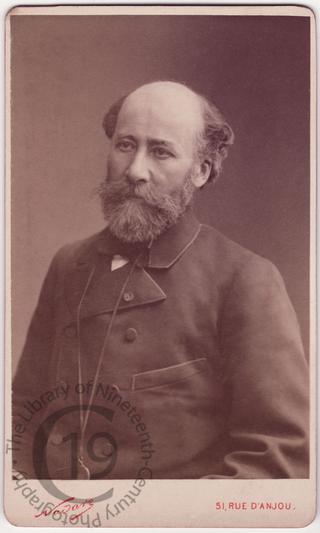
Octave Feuillet
A carte-de-visite of French author and playwright Octave Feuillet (1821-1890).
Lauded by the theatre-going public and many critics during the period of France's Second Empire, Octave Feuillet now appears in nineteenth-century theatre history as a secondary playwright after Alexandre Dumas fils, Emile Augier, and Victorien Sardou. An acclaimed writer of novels as well, Feuillet adapted some of these works for the stage after first presenting both novels and plays to the public in the review titled La Revue des Deux Mondes. Theatre critics praised the moral lessons taught through his plays: the importance of marriage as an institution and the value of religious faith. His portrayal of high-society women and their elegant world proved attractive to readers and audiences. Influenced by Alfred de Musset, George Sand and Alexandre Dumas père his writings exhibited both realist and idealist tendencies. American theatres continued to perform translations and adaptations of Feuillet's work into the twentieth century and French theatres revived his plays periodically.
Photographed by Nadar of Paris.
Code: 124332




